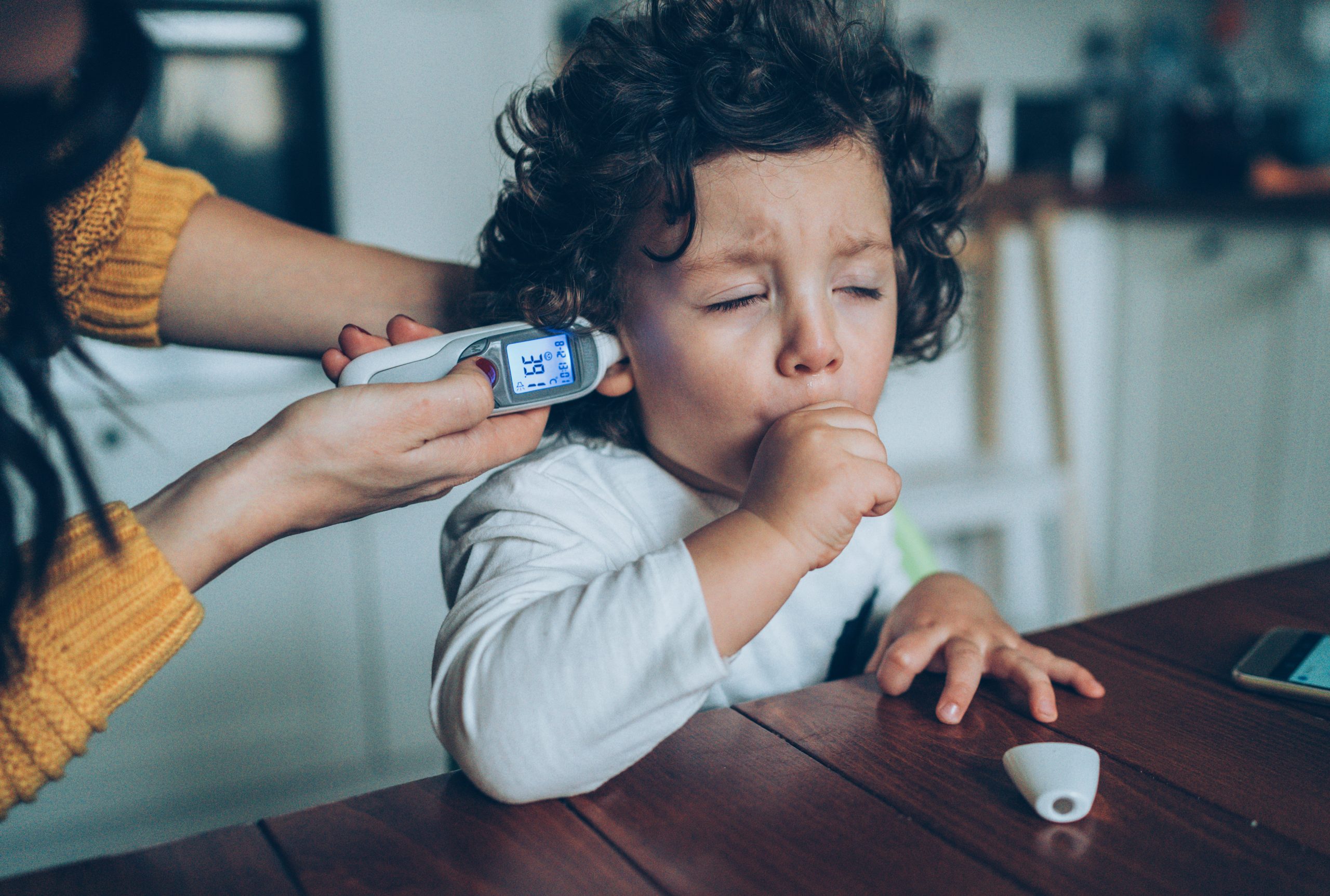This article is sponsored by Children’s Mercy Wichita.

Facts about RSV
Across the United States, pediatricians and children’s hospitals are reporting an unusually high number of children infected with RSV and other respiratory viruses. This year respiratory syncytial virus, or RSV, started surging in late summer, months before its typical season. Based on the number of cases reported already this year, it is predicted this will be one of the most severe RSV seasons in years.
RSV gives cold-like symptoms and can be dangerous for some infants and young children. Here’s what you need to know to help keep your family safe.
What is RSV?
RSV is a contagious virus that can be spread through droplets from coughing, sneezing or touching infected surfaces and then touching your face. The symptoms are cold-like and show up around 4 to 6 days after infection.
Symptoms include:
- Cough
- Trouble breathing
- Fever
- Runny nose and nasal congestion
For most children, RSV causes mild symptoms, and the body fights the virus off in 1-2 weeks. In young children, particularly those less than 6 months, and children with weakened immune systems, RSV can become dangerous by causing other infections like bronchiolitis and pneumonia.
Is RSV in Wichita?
We typically have RSV every year, but we are currently seeing an increase in RSV cases around the United States. This is unusual because RSV typically occurs in the winter months, starting around November. In 2020, there was very little RSV in the United States. This is likely related to people wearing masks, washing hands and distancing which all decrease the spread of respiratory viruses. With people out in the community more this year, it’s allowed RSV to spread to more people and sooner in our area.
Can you treat RSV?
There is no specific treatment or vaccine available for RSV. You can manage fever and pain with most over-the-counter medications. If your child is having trouble breathing or staying hydrated, call your doctor or seek medical care.
Can RSV spread be prevented?
You can help prevent RSV from infecting more people.
- Wash your hands for at least 20 seconds.
- Keep away from people who are sick.
- Cover coughs and sneezes.
- Clean surfaces often like doorknobs, car handles, phones and keys.
- Stay at home if you are sick.
What if you think your child has RSV?
Your child may be able to fight it off at home with medication, rest and drinking plenty of fluids, but the infection can get worse. If you notice your child IS having trouble breathing, seek medical attention as soon as possible.
Facts about the Flu
The first cases of seasonal influenza have been reported. We are expecting a severe flu season nationally this year. To put it in perspective, 1 in every 3 unvaccinated children is predicted to get influenza, while 1 in 9 unvaccinated adults will get symptomatic influenza. The Southern Hemisphere (including countries like Australia) have seen a worse influenza season during their winter months, which makes us believe our season could be worse as well.
What is the flu?
Flu, or influenza, is an infection of the nose, throat and lungs caused by the influenza virus. The flu can cause you to feel sick for at least a week. It is contagious and can be easily spread through droplets from person to person.
There’s a misconception that influenza “isn’t that bad,” but it actually can be deadly. Nothing is “just a virus.” A virus, like the flu, can make you just as sick, if not sicker, than some bacterial infections. So, be sure to take the flu seriously.
Flu symptoms include:
- Fever
- Headache, body aches, chills
- Cough
- Runny nose, congestion
- Sore throat
- Nausea, vomiting, or diarrhea
Protect Yourself from the Flu
The best way to protect yourself from getting the flu is to get vaccinated. Flu vaccine is safe and available for people 6 months and older at your doctor’s office and many places throughout your community starting in October.
Here are tips for staying healthy:
- Get a flu vaccine.
- Wash your hands for at least 20 seconds with soap and water.
- Cover your nose and mouth with a tissue when coughing or sneezing (or sneeze/cough into your elbow).
- Avoid touching your eyes, nose and mouth.
- Stay home from work or school if you have symptoms of the flu.

Children’s Mercy Wichita offers a child-friendly environment to provide families access to pediatric specialty care that otherwise might not be available without traveling out of the community including Cardiology, Endocrinology, Nephrology, Hepatology, Neurosurgery, Plastic Surgery and more.
















